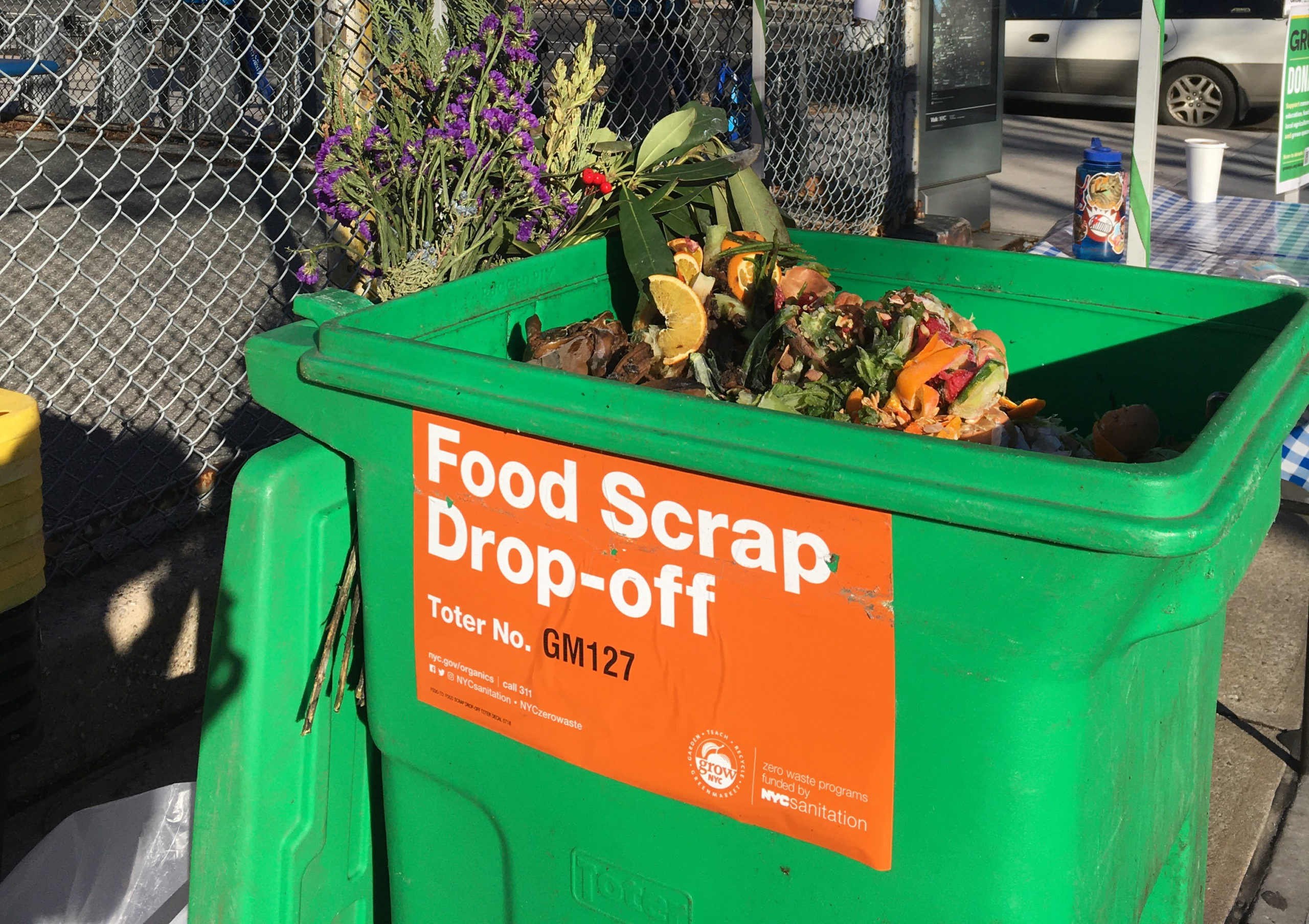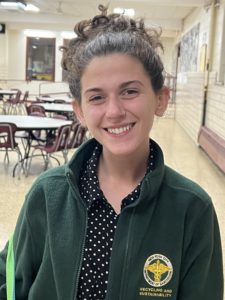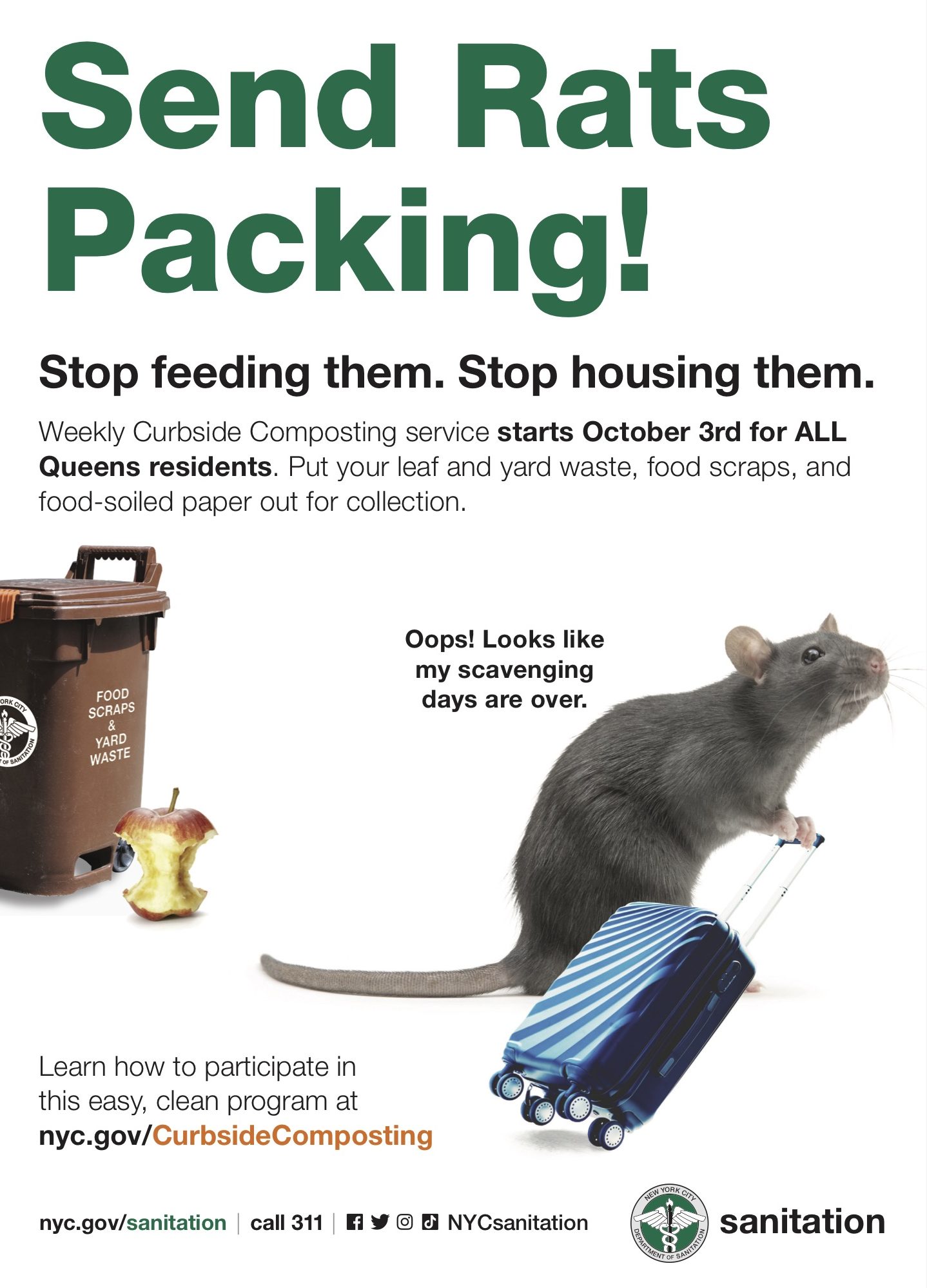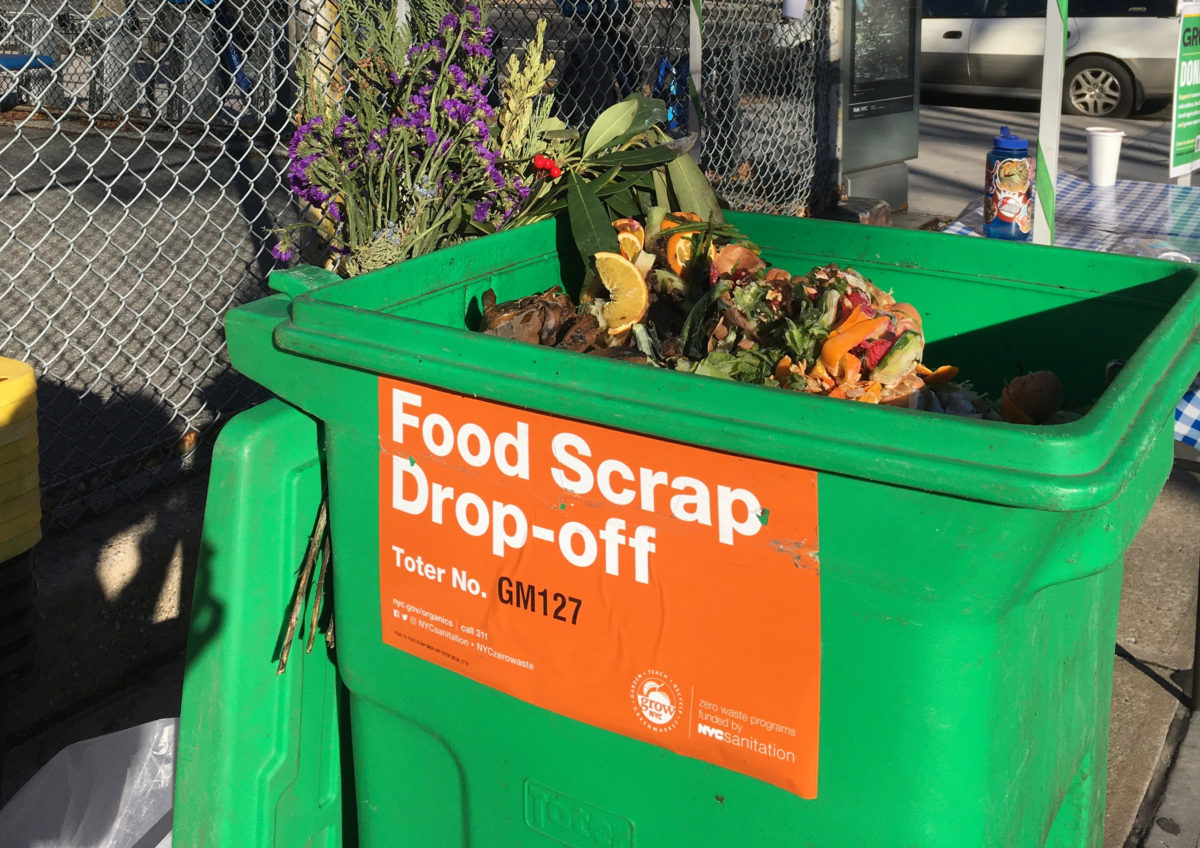‘Make Compost, Not Trash,’ DSNY says
By Billy Wood
news@queensledger.com

Everyone is encouraged to compost. Photo: GrowNYC.
At the beginning of this month, the Department of Sanitation kicked off the curbside composting program for all of Queens County, with pick-ups scheduled on recycling days.
Compost pertains to items such as food scraps and leaves that are thrown out, but can be put in soil to help plants grow.
Therefore, it’s better for the environment because it makes for less waste in landfills and reduces the release of methane into the air.
“One-third of what New York residents throw out is compostable,” said Allie Gumas, senior manager of drop off and community composting at the Department of Sanitation.
“If you want to throw in your meat, diary, and other food scraps we will take that,” said Gumas. “You are giving it to us already, it is just a matter of it getting composted or not.”

DSNY’s Allie Gumas spoke at last week’s CB5 monthly meeting.
As things continue to return to how they once were pre-COVID, Gumas and others are handing out fliers and mailers to help spread the word. They want everyone to know about the composting program.
“For now, we are still supplying free brown bins to the buildings that want to start participating,” she said. “It is like when recycling was first rolled out in the late ‘80s early ‘90s because they were giving out recycling bins.”
Curbside composting is not something new to the city. It began in Staten Island in 2013. Eventually, some neighborhoods in Queens did have compost service, but due to the pandemic, the funding had to be reallocated and composting was halted.
“It is important that we do organic recycling,” said Gary Giordano, district manager of Queens Community Board 5. “It is 30 percent of the waste stream of NYC.”
One of the biggest expenses for the Department of Sanitation is the waste export. According to The Council of the City of New York, the budget for 2022 will be increased to $448.2 million.
“We need that composting. It will save the city a lot of money and even more important is that it is important for the environment,” Giordano said.
While it is still too early to get the data on the amount of homes that are making use of the curbside composting program, the department is hoping a high number of residents are participating.
The program will be on hiatus from the last week of December through March for winter preparation.

During those months, they will look into the data to see how much yard and food waste they receive. Once they have more information they will then gauge how they should move forward with this relatively new program.
While there will be no pick-ups during those months, there will be drop-off locations throughout the city that will accept your compost.
Locally, GrowNYC offers their composting program at the Ridgewood Farmstand, located at the Ridgewood Veterans Triangle at Myrtle and Cypress Avenues. Between 9:30 a.m. and 1:30 p.m. each Saturday through Nov 19., folks can bring their food scraps to the location to make compost.
For information about drop-off locations, please visit https://www1.nyc.gov/assets/dsny/site/services/food-scraps-and-yard-waste-page/nyc-food-scrap-drop-off-locations.




